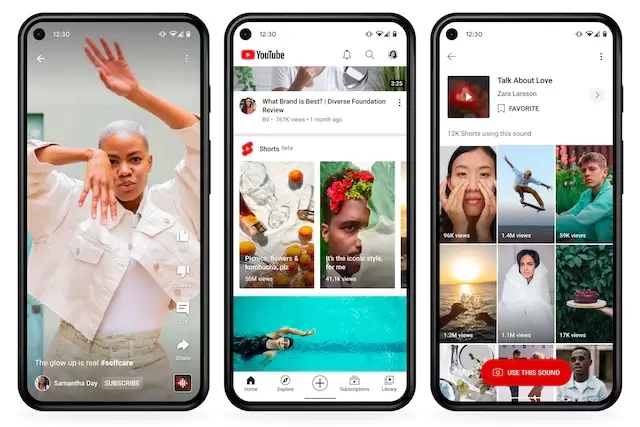Are Online Classes the Solution?
 In response to the Virginia Tech tragedy, more campuses are signing up for emergency notification services that send weather alerts, security warnings and class cancellations directly to students' e-mail addresses and cell phones. Many traditional college courses now have online discussion components powered by software and services like the recently merged Blackboard and WebCT. Discussion boards and chat rooms are a must. The powerful combination of cell phones, text messaging, instant messaging and e-mail means that Net Generation students are always mid-conversation with one or more friends either online, in person or both at the same time. They're comfortable starting and maintaining online relationships and becoming "good friends" with people they've never met in person. Net Generation students live in a communication environment where friends and peers are constantly "logged on" and reachable by either phone, e-mail or instant messaging. It's this emotional honesty that helps members of the Net Generation connect to each other so quickly and feel they are lifelong friends. Then we'll explain how they communicate, how they view their world, and finally, how schools and companies are evolving to better take advantage of the unique talents of these multitasking, multitalented young minds.
In response to the Virginia Tech tragedy, more campuses are signing up for emergency notification services that send weather alerts, security warnings and class cancellations directly to students' e-mail addresses and cell phones. Many traditional college courses now have online discussion components powered by software and services like the recently merged Blackboard and WebCT. Discussion boards and chat rooms are a must. The powerful combination of cell phones, text messaging, instant messaging and e-mail means that Net Generation students are always mid-conversation with one or more friends either online, in person or both at the same time. They're comfortable starting and maintaining online relationships and becoming "good friends" with people they've never met in person. Net Generation students live in a communication environment where friends and peers are constantly "logged on" and reachable by either phone, e-mail or instant messaging. It's this emotional honesty that helps members of the Net Generation connect to each other so quickly and feel they are lifelong friends. Then we'll explain how they communicate, how they view their world, and finally, how schools and companies are evolving to better take advantage of the unique talents of these multitasking, multitalented young minds.
It takes time and technical savvy to create engaging online content, two things many professors are short on. For these two generations to communicate effectively takes real understanding of what makes the Net Generation college student tick. One of the more surprising results of the Net Generation Survey is that, on average, the Net Generation college student speaks to one or both of his parents 1.5 times a day. Now that we know more about how the Net Generation student learns and works, let's explore how they communicate with peers, professors and even their parents. More than anything, Net Generation students are excellent collaborators. With the popularity of YouTube, more and more students are posting vlogs, or video blogs, that cut out the middle man by talking straight to the viewer. Net Generation students are open and emotionally honest in their online communications. They'll have their iPod on, six browser windows open and three instant messaging conversations going while they're writing software code. Researchers have found that Net Generation students have very close, open relationships with their parents, with whom they share many of the same values.
From a childhood spent watching MTV, movies and video clips online, they have a natural eye and ear for editing audio, video and text. They want to be able to e-mail and text her and get quick responses in return. Net Generation workers want to telecommute at least a portion of their hours or create flexible work schedules that may not jibe with the traditional 9-to-5. They also have hobbies and interests as eclectic as their Web surfing histories. They want to e-mail the director of the study abroad program and receive an answer quickly. Net Generation students consider themselves active "global citizens," participating in international study and service projects. They reflect the values of high-profile celebrities who have taken on international causes, and youthful billionaires who have embraced philanthropy. If anything, say some educators, it's the students who should adapt their attention-deprived learning styles to fit a traditional college education, not the other way around.
For many of them, work will never be the center of their lives, and they search out employers who understand the importance of maintaining a healthy work-play balance. Author and Net Generation expert Don Tapscott emphasizes the importance of freedom to the Net Generation worker. The Net Generation is not only adept at process information from multiple sources, but they are intuitively drawn to creating multi-media presentations. Large lecture courses are regularly broken up into small group discussions. Microsoft PowerPoint presentations are popular, as are posting all presentations, lecture notes, assignments and syllabi online. On the flip side, most college professors and bosses are Digital Immigrants. Net Generation workers are still going to multitask. And that mind doesn't sit still for long. An entry-level employee should be able to instant message a senior executive with an idea and expect a response. What would instant messaging be, after all, without a buddy list? Part of this constant communication can be credited to cell-phone technology. The Net Generation is the largest in American history -- over 100 million and counting -- and its intuitive use of technology is quickly changing how teachers teach and workplaces work. High achievers, they crave rewards and accolades for their hard work. Post h as been generated with t he help of GSA C ontent G enerator Demov ersion!
In case you loved this informative article and you would want to receive more info with regards to video shorts generously visit our web-page.

Post a Comment for "Are Online Classes the Solution?"